Are you facing the difficult situation of terminating an employee's trial period due to unsatisfactory performance? Crafting a respectful and clear letter is crucial in maintaining professionalism and providing closure. In this article, we'll guide you through a thoughtful letter template that balances honesty with compassion. So, let's dive in and explore how to communicate this sensitive message effectivelyâafter all, it's essential to handle such matters with care.

Clear and Concise Language
During a trial period, employee performance can be assessed thoroughly to ensure alignment with company standards. In the case of unsatisfactory performance, specific metrics such as productivity levels (less than 70% of set targets), adherence to deadlines (missing at least three key deadlines), and teamwork (receiving negative feedback from team members) can serve as indicators for termination. Locations such as the headquarters in New York and regional offices may have distinct criteria; however, consistent communication, including formal feedback sessions, can clarify expectations and outcomes. Ultimately, if standards are not met and improvement is not observed, concluding the trial period is a necessary step for maintaining organizational efficiency and effectiveness.
Specific Feedback and Reasons
During the trial period at XYZ Corporation, performance metrics outlined in the employee handbook, such as sales targets and project deadlines, were not met. Specifically, the three-month assessment showed a 20% shortfall in achieving the sales quota of $50,000. Additionally, project submissions were delayed consistently, with an average of two weeks behind schedule. Team feedback highlighted challenges in collaboration, particularly in the recent marketing campaign for product ABC, where communication gaps were identified. These issues resulted in missed deadlines and overall project goals being unmet. Consequently, the decision for termination is based on a cumulative evaluation of these performance concerns, ensuring the company upholds its standards and objectives.
Legal Compliance and Procedures
During an unsatisfactory trial period termination, employers must adhere to established legal compliance and procedures. Documentation of performance issues must be gathered, including specific incidents, feedback provided, and any improvement plans implemented. The employee's rights under labor laws, such as those outlined in the Fair Labor Standards Act (FLSA) in the United States, must be acknowledged. A formal termination letter should be drafted, clearly stating the reasons for termination, referencing the trial period guidelines agreed upon during onboarding. This letter should include the last working day, information about final paychecks, and any accrued benefits. It is crucial to maintain a respectful tone to mitigate potential disputes or legal repercussions while ensuring that all actions align with company policies and local employment regulations.
Professional and Polite Tone
The trial period for employees serves as a critical evaluation phase for assessing job performance and fit within an organization. During this time, specific roles were delineated, emphasizing the importance of meeting expectations related to productivity, teamwork, and adaptability. In instances where performance does not align with established benchmarks, it may be necessary to initiate discussions surrounding potential termination of employment. Such decisions often stem from objective criteria, such as failure to meet key performance indicators (KPIs) or feedback gathered through standardized review processes. The process should remain respectful and constructive, focusing on providing clear documentation regarding reasons for termination, as well as any potential future opportunities for improvement or recommendations for alternate pathways. Maintaining professionalism throughout this dialogue is crucial in preserving the dignity of all parties involved and upholding the organization's reputation in the labor market.
Supportive and Constructive Suggestions
During the trial period, performance issues became evident, indicating that the employee's skills did not align with the expectations of the role. Specific areas of concern included time management, communication (averaging three missed deadlines), and technical proficiency (limited knowledge of essential software tools). Regular feedback sessions highlighted these challenges, with improvement plans implemented but yielding minimal progress. Constructive suggestions for future development include attending relevant workshops or training programs, such as time management seminars or technical skills boot camps. Additionally, seeking mentorship from experienced colleagues could provide valuable guidance. Keeping an open line of communication with supervisors may foster growth and enhance overall performance in subsequent roles.
Letter Template For Unsatisfactory Trial Period Termination Samples
Letter template of trial period termination for not meeting expectations
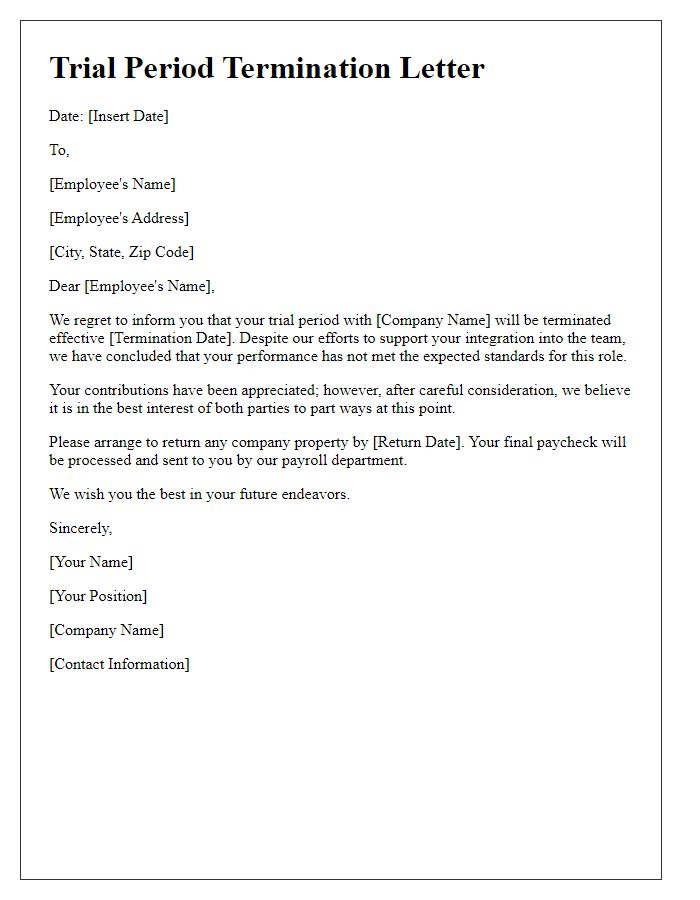
Letter template of termination of trial position over unforeseen circumstances
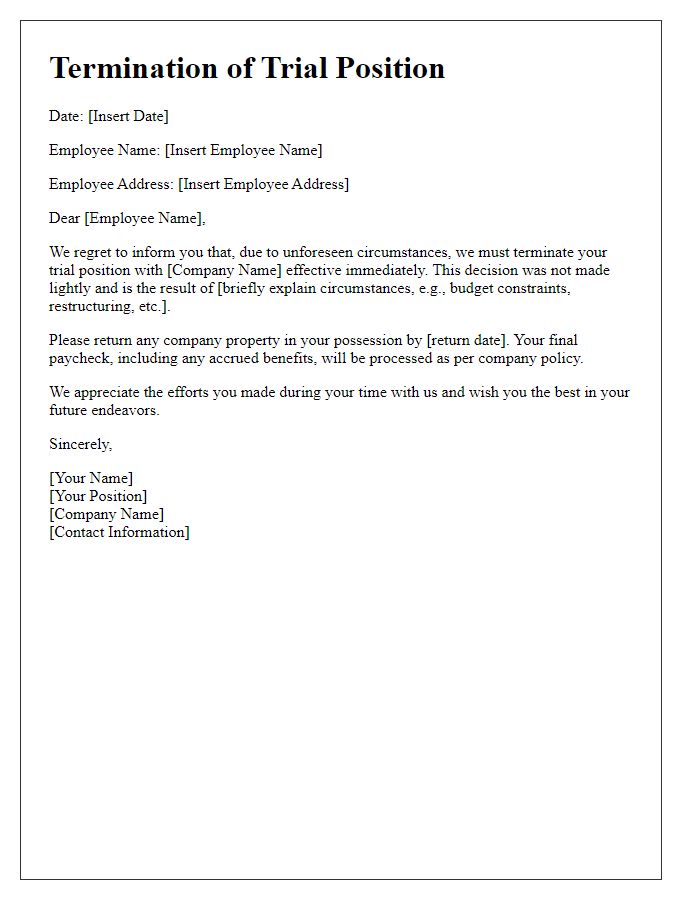

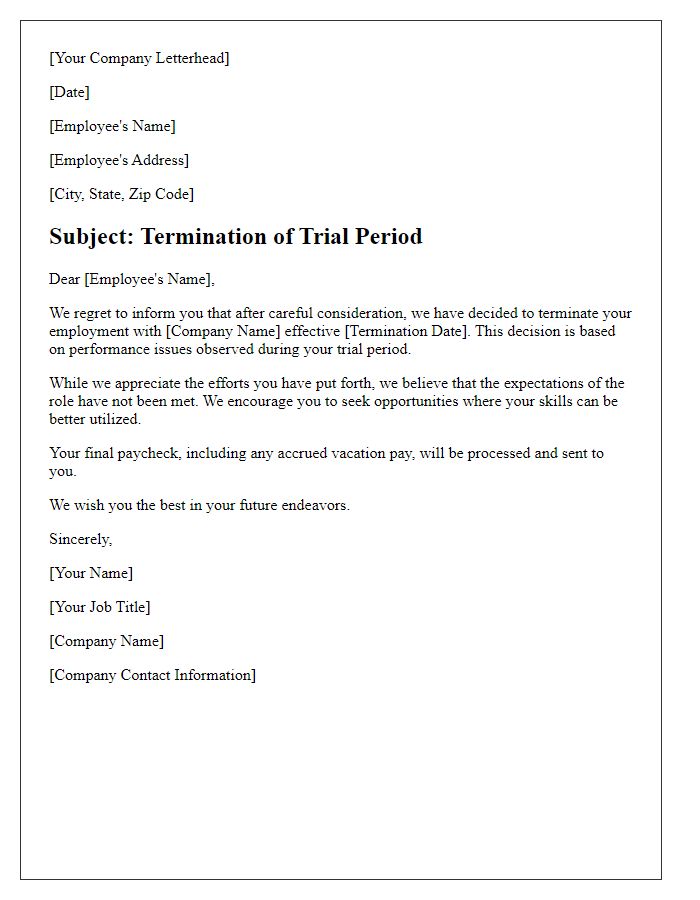
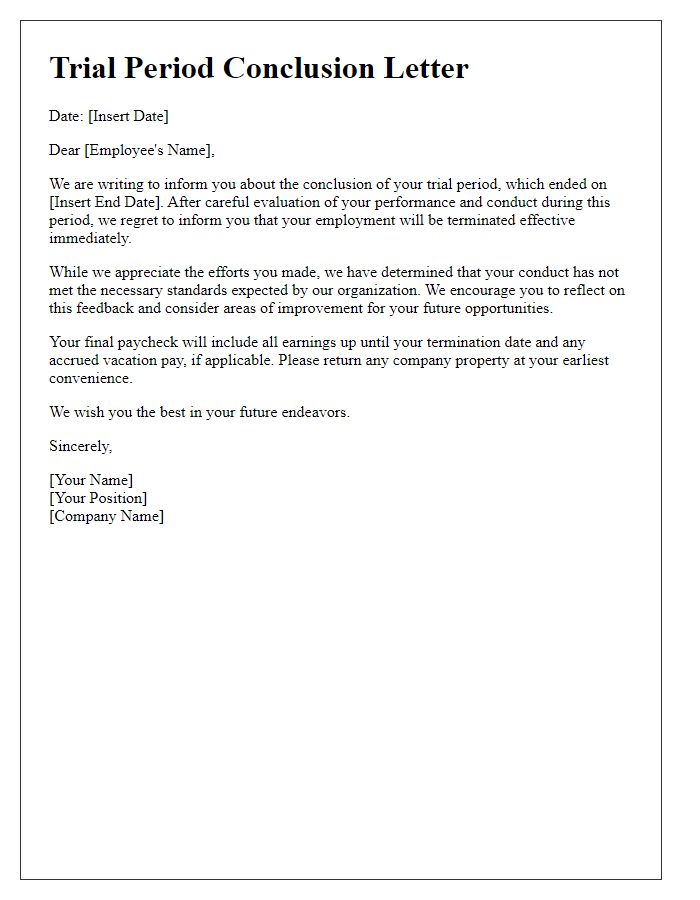
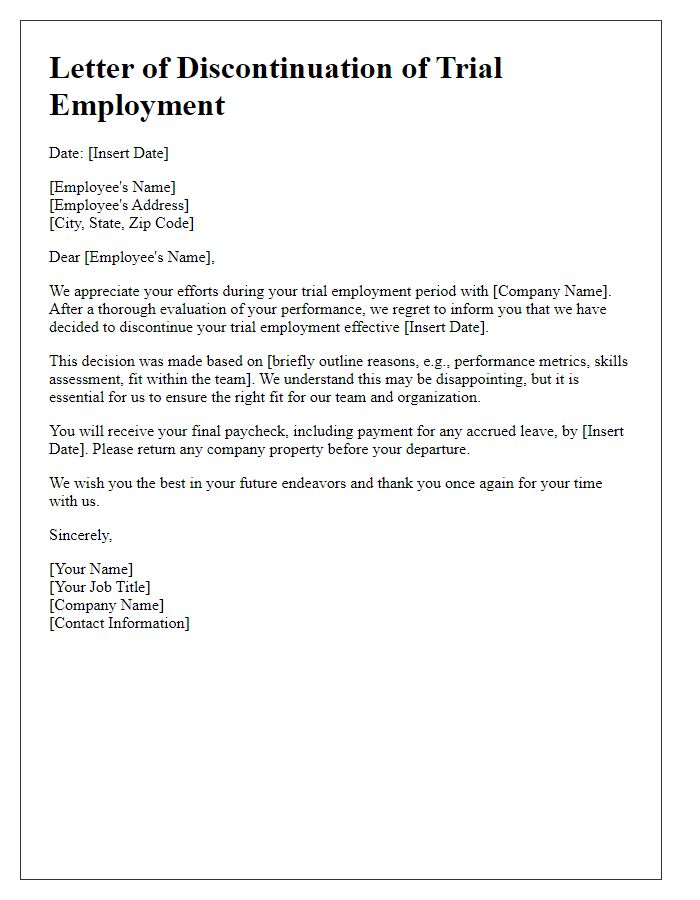
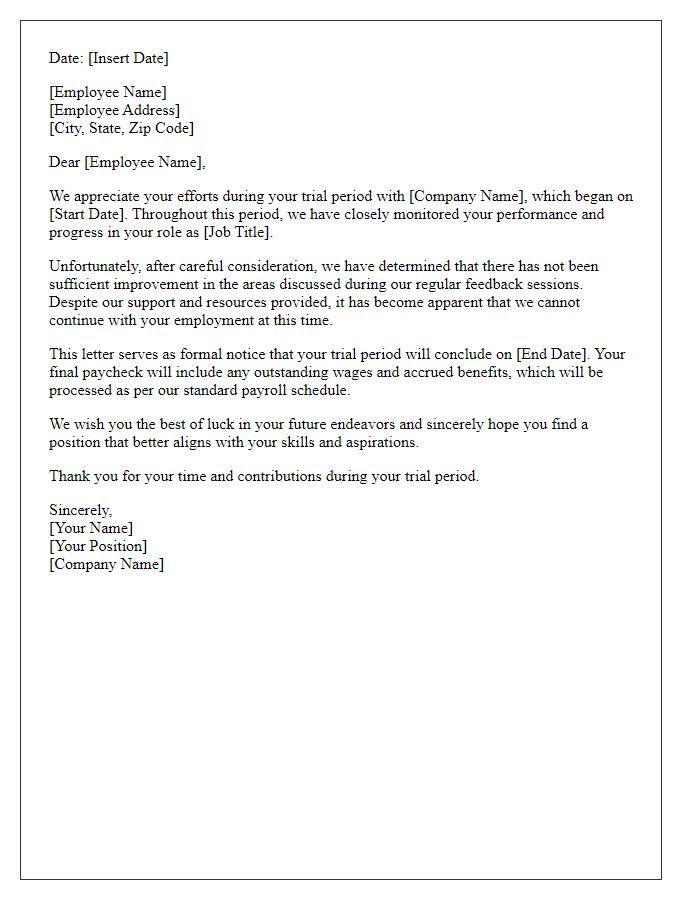
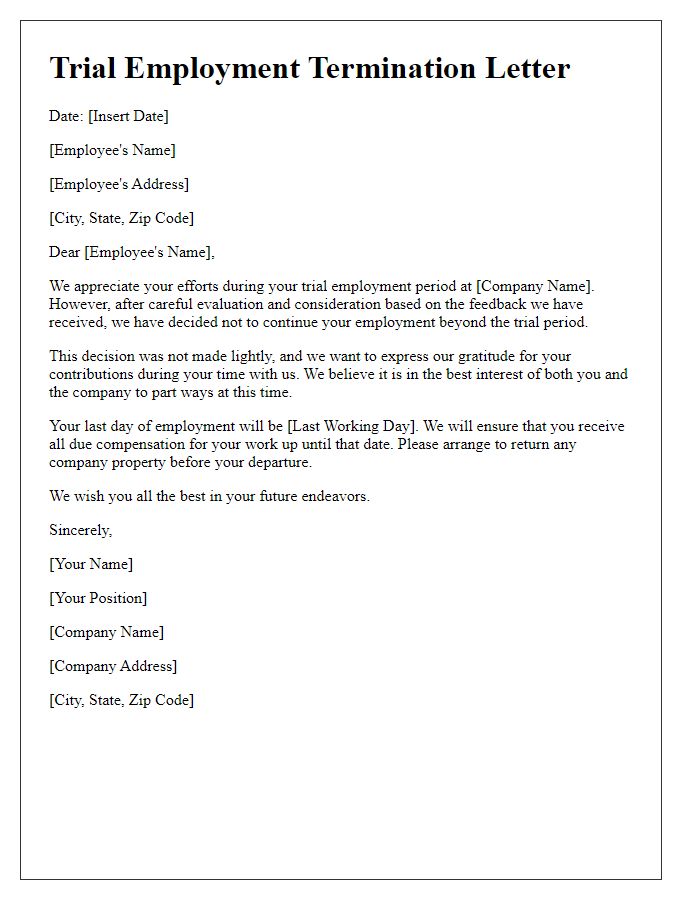
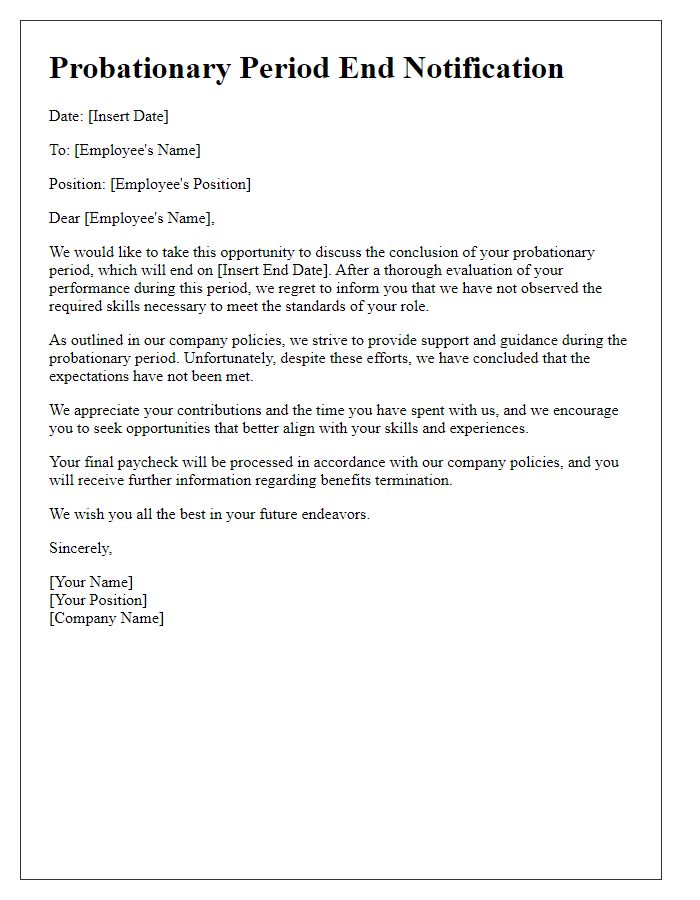
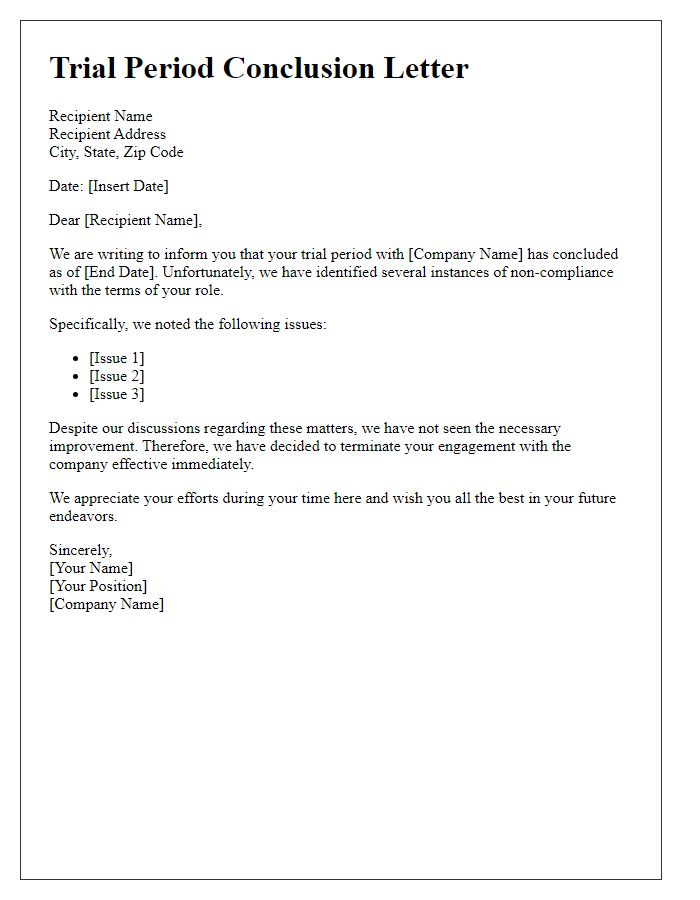
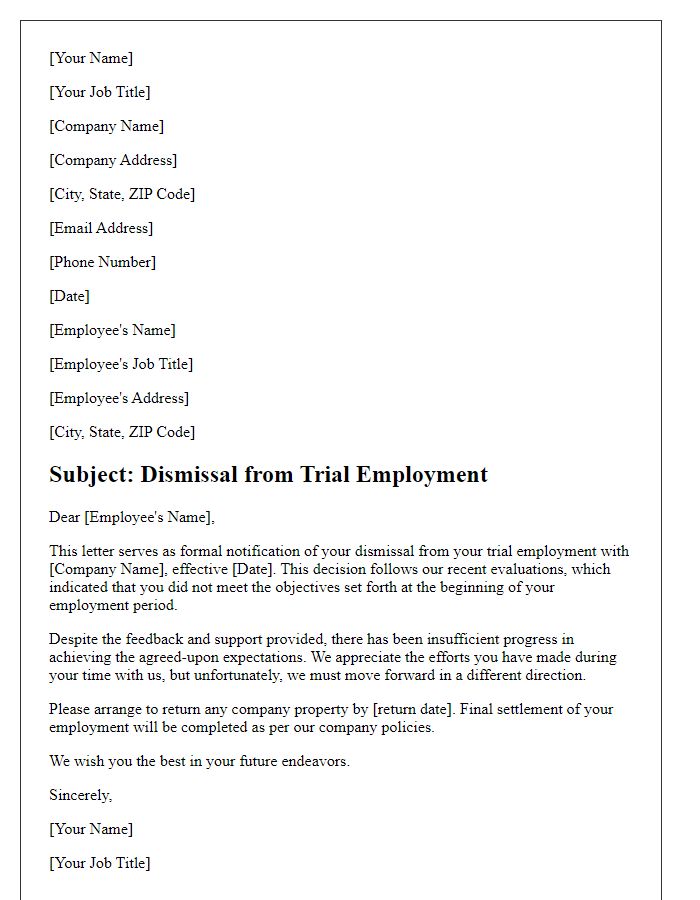


Comments